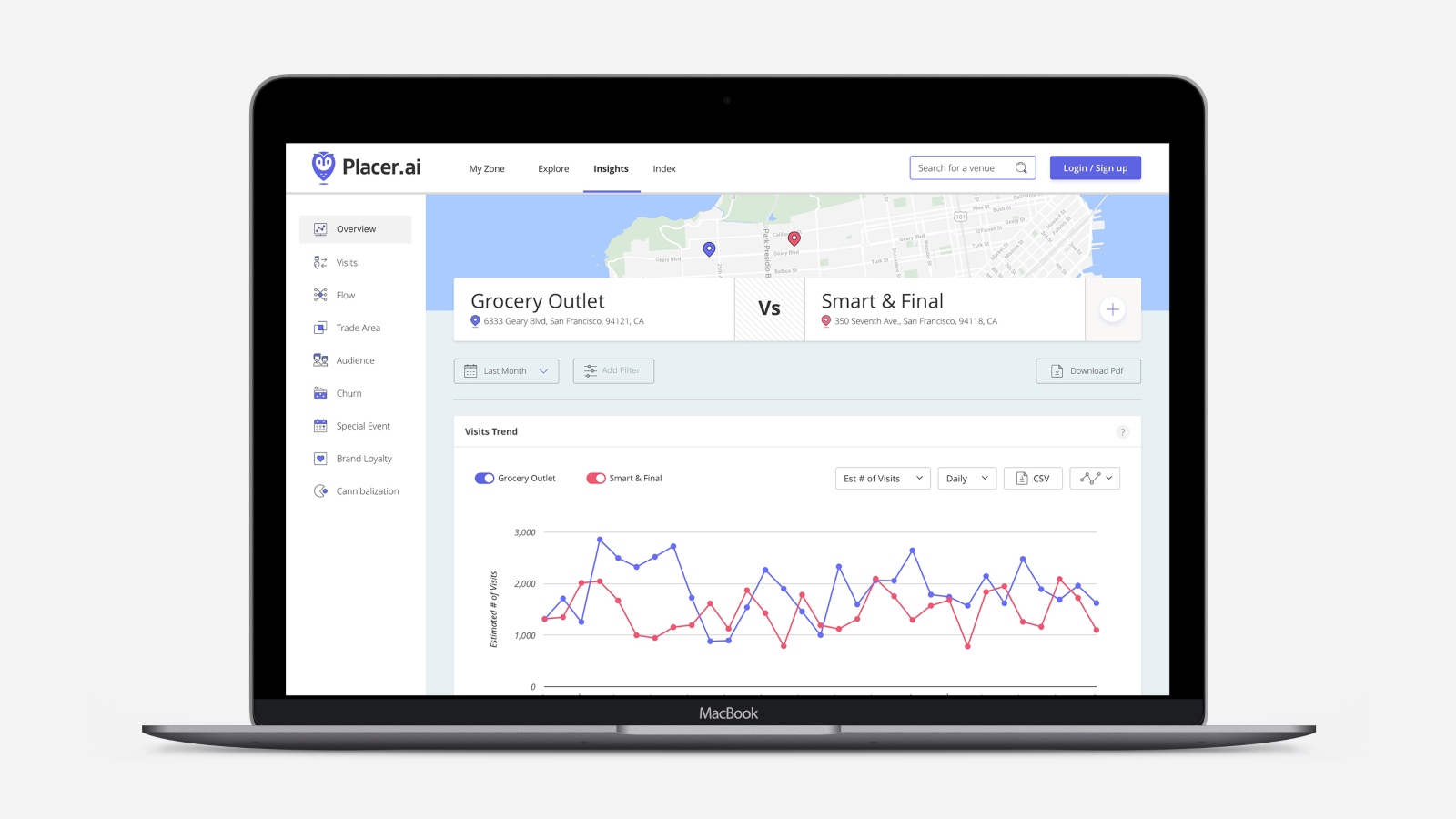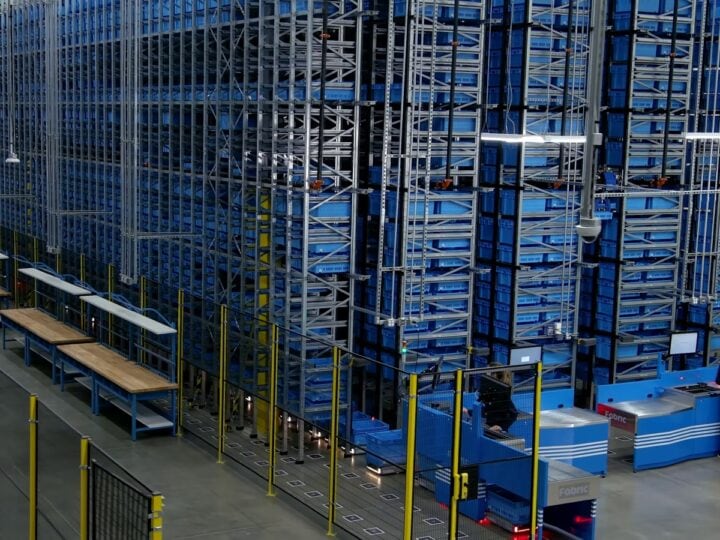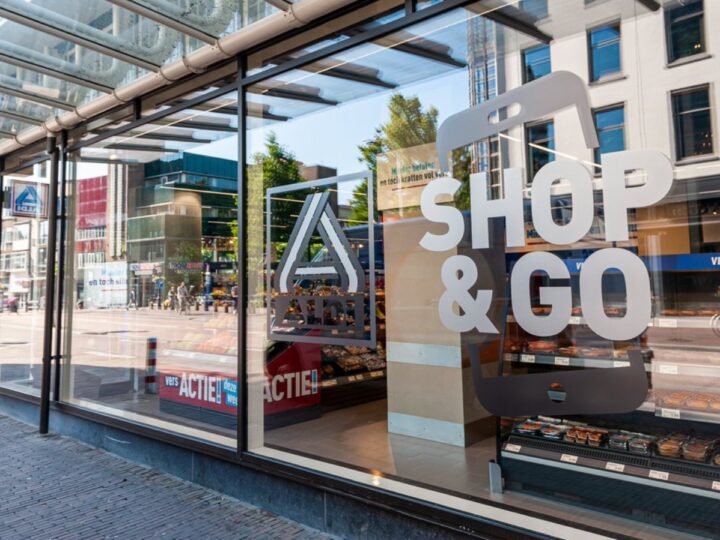Your supermarket and department store know who you are, what you’ve bought and where you’re shopping next.
That may sound invasive, but if it allows you to check out faster and get the products you want cheaper, is it a fair trade-off? Ethan Chernofsky, VP of marketing at Placer.ai, one of the Israeli companies vying to change the brick-and-mortar shopping experience, says yes.
Big stores like Target and Walmart already had access to this kind of data through less technical means such as reviewing Mastercard sales reports, Chernofsky tells ISRAEL21c. Emerging technologies including artificial intelligence and machine learning will have a strong “democratizing influence that levels the playing field.”
Companies like Placer.ai, Chernofsky adds, can provide big-data insights to smaller retailers, non-profit organizations and municipalities to strengthen their overall economic growth and optimization.
The key to preventing an all-out consumer rebellion is ensuring anonymity. Data must be scrubbed of any identifying information. If done right, Chernofsky maintains, “data provides for a greater good.”
ISRAEL21c takes a look at five Israeli startups that are betting the benefits they offer will tip the scale from spooky to superlative.
Placer.ai: Where will you shop next?

Placer.ai calls itself “the world’s most advanced foot traffic analytics platform.”
The company raised $4 million in 2018 to launch a free online tool that allows retailers to glean “insights and behavioral predictions for any location, store or geographic area.” This kind of data was previously available only for digital shops.
The “ai” in the company’s name stands for the artificial intelligence Placer.ai employs to crunch the data it receives anonymously from tens of millions of mobile devices via partnerships withmobile applications.
Placer.ai can determine that “a phone moved from point X to point Y and how much time it spent in each place,” Chernofsky explains. “Our algorithms make sense of those movements. We know that you went into a CVS store in a mall, even though GPS doesn’t track the device all the way to the store.”
Placer.ai can help stores compare their business performance with any local or distant competitor, gain insight into more than 13 million venues and places across the United States, and analyze traffic and customer behavior in any retail industry.
Placer.ai customers include Caesars Entertainment, the Santa Cruz Beach Boardwalk, commercial real estate services and investment firm CBRE, management consultants Bain & Company and NewMark Merrill, which operates more than 75 US shopping centers.
Anagog: Mobile insights for Russian supermarkets
Tel Aviv-based Anagog, like Placer.ai, analyzes real-time data from smartphones in order to gain insights and make predictions about consumer preferences.
Anagog says its tracking technology can be found in 25 million smartphones around the world and it has partnerships with 100 mobile app makers. Anagog’s AI engine is downloaded and runs on the mobile device itself, enhancing user privacy because there’s no need to transmit data to a central server.
ISRAEL21c first wrote about Anagog when the company launched in 2014 with a focus on using mobile device data to predict when an on-street parking space would become free. Early investors included carmakers Volkswagen and Daimler.
“That’s no longer a major focus,” a company spokesperson told ISRAEL21c. The company’s customers are now mainly in retail, banking and telecommunications.
Earlier this year, Anagog won the X5 Retail-Tech Challenge held in Tel Aviv by the Israel-Russia Chamber of Commerce for the X5 group, Russia’s largest retail chain with annual revenue of $33 billion. Anagog’s management team was invited to Moscow to meet with X5 executives, with the goal of inking a deal.
Trigo Vision: Powering the next generation of Amazon Go
Amazon Go – the Seattle-based online retailing giant’s foray into brick-and-mortar retailing – has set the standard for the checkout-free supermarkets. Cameras and sensors track what you put in your basket. When you walk out the door, your credit card is automatically charged.
Tel Aviv-based Trigo Vision’s system combines a ceiling-based camera network with machine vision algorithms to identify and capture customers’ chosen items as they shop.
Founded by former IDF intelligence officers, Trigo launched in 2017 and has raised a total of $29 million. British supermarket chain Tesco is now integrating Trigo Vision technology on its shoppers’ app.
The original idea was to build a smart shopping cart, but CEO Michael Gabay told the website TNW, “It was too expensive, it broke a lot, people steal them, they have to replace batteries and do maintenance. That’s when we got the idea to put cameras overhead.”
Shufersal, Israel’s largest supermarket chain, plans to implement the Trigo system across its 272 stores. Shufersal CEO Itzik Abercohen said the partnership “will transform the shopping experience and will minimize our customers’ friction points.”
For interested retailers, Trigo’s set-up does not require rearranging products, entering codes or installingshelf-level sensors.
Preciate: Facial recognition for faster checkouts

Preciate claims its face-recognition technology can identify people in a crowd with accuracy in the “high 90s” percent. Retailers can use it to gather information about shopping habits; facilitate instant payment with no checkout line; and push coupons and offers directly to a retailer’s branded Preciate app for consumers.
To assuage privacy concerns, the company emphasizes that Preciate will not identify shoppers by face without their specific consent and that shoppers’ images will never be stored. Preciate complies with the European Union’s GDPR privacy standard, as well.
“Outside the security world, face-recognition technology is considered creepy,” admits Preciate cofounder Avi Naor. But over time, Naor predicts, facial recognition will become a non-issue in the same way that paying by credit card online has become common.
Naor has the background to make good on his prediction: He previously co-founded Amdocs, one of Israel’s largest software companies with a market capitalization of $9 billion. And recently, Israeli retailer Fox Wizel agreed to purchase an option for 20% of Preciate’s shares at a valuation of $15.5 million.
Shekel Brainweigh: AI meets the scale
Shekel Brainweigh is a classic kibbutz success story. Established four decades ago at Kibbutz Beit Keshet in northern Israel, the company is a leader in precision weighing. It supplies scales for GE Healthcare incubators and warmers, and is the brains behind many self-checkout services, partnering with developers such as Toshiba, Fujitsu and Datalogic.
“We were one of the first to go from mechanical weighing to digital weighing,” Shekel Brainweigh executive partner Shlomo Talitman says.
With 2018 revenues of $18.7 million, the company used artificial intelligence to develop a “Product Aware” shelf that “feels” the products it bears.
On the edges of each shelf, Shekel Brainweigh installs four Internet-connected load sensors. Since every product has its own signature weight distribution, when combined with the SKU (stock keeping unit) of the product, Shekel Brainweigh’s tech can communicate to a retailer in real-time which items were picked up, returned or need to be replenished.
The company’s other new product is “Innovendi,” an unattended AI-based vending machine. Customers swipe their credit card or use a smartphone payment app, open the door to the vending machine, take what they want and walk away. The selected products are identified by weight and paid for automatically.
The company is conducting pilots with manufacturers in Israel, Germany and the United States with a plan to launch commercially in 2020. A partnership with Israeli dairy manufacturer Tnuva calls for the roll-out of 1,200 Innovendi machines over a seven-year period.

















